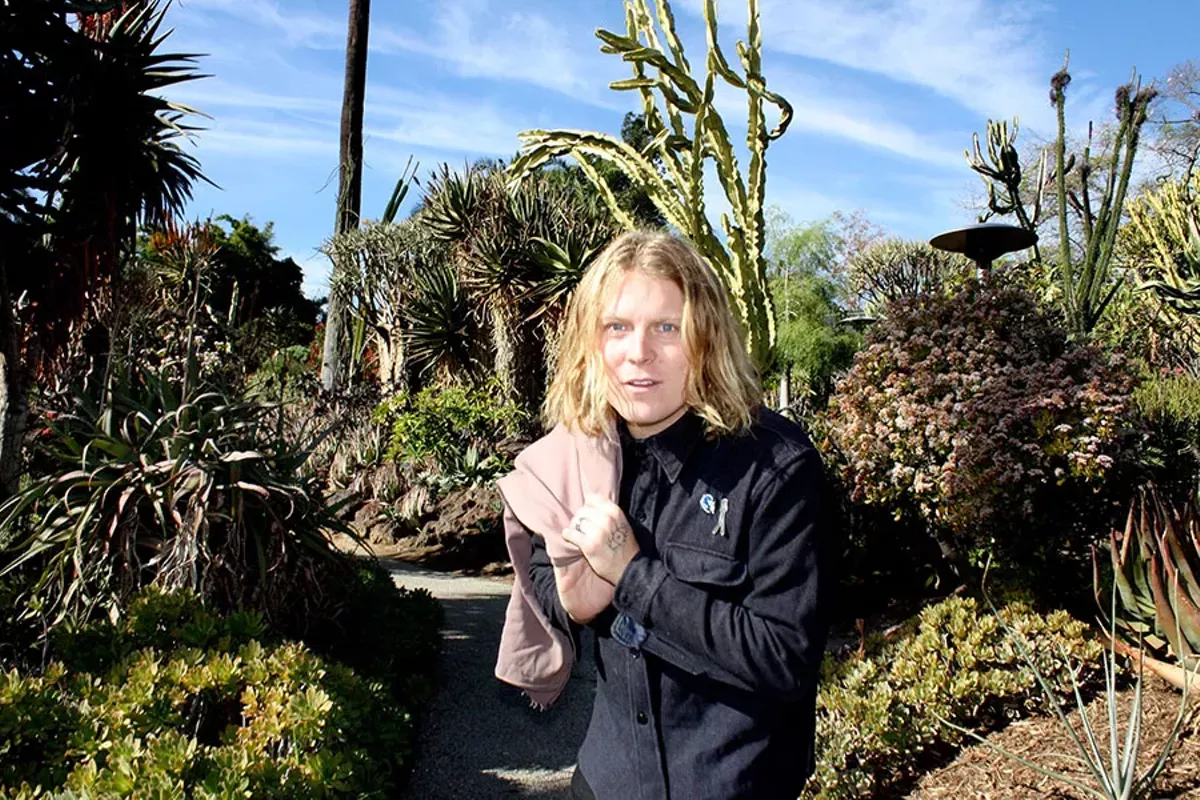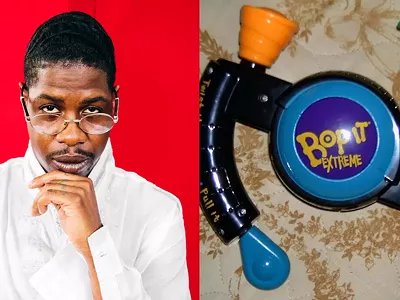Everyone is quick to call Ty Segall "prolific," and only now is the unofficial prophet of psychedelia learning to accept it. This assessment isn't completely off base, though, considering the 30-year-old multi-instrumentalist and master of fuzz recently released his tenth album in 10 years, the double LP Freedom's Goblin — a frenzied dive into his many minds.
His cult success is not easily explained in numbers or lengthy, colorful descriptions of his trippy arrangements. Perhaps his steady climb to indie fame is best validated by Goblin's opener, "Fanny Dog," a jittery ode to his dachshund which bleeds into the slower ballad "Rain," where Segall confesses he is "waiting for the sky to die."
When we caught up with Segall, he is pouring his first cup of coffee and is excited to list off his music haul from his recent trip to Japan, including some High Rise records, a koto, and a newfound appreciation for Happy End, Japan's equivalent to the Beatles. Segall went on to explain why being subversive works for him and why he will never write a sequel to Love's Forever Changes (no matter how badly he may want to).
Metro Times: You released Freedom's Goblin earlier this year. It is your tenth record in 10 years. What sacrifices did you have to make to make that happen?
Ty Segall: You know, I don't know if I consider anything sacrifices for me, because its all fun and it's my job. It's not like I'm not doing things I don't want to do. I do work on music a lot, but I don't think I work more than anybody with a job, and luckily I like my job.
MT: In the past, you have openly resisted being called "prolific." How do you feel about it now?
Segall: I guess the reason it annoyed me in the past was because it was always thrown at me like it was a bad thing. Why are you prolific? It's detrimental to you. It's diluting your art or whatever, and so I became sensitive to that. But it's true. Prolific just means making a lot of things. I do make a lot of things. It doesn't bother me anymore.
MT: In 2018, it seems as though all art is filtered through political statement or ambivalence. Freedom's Goblin feels political. Is it?
Segall: I've been asked this a bunch and it makes me happy to reply because I'm all about subversive vestiges and tones and themes. I wish I could write more overtly political and straightforward songs, but I can't. I'm not that great of a lyricist and I'm not that kind of a lyricist, so the way I tackle things is I make it a little abstract.
I really like records and films and art that don't just display the message they want people to have themselves, but it makes them ask the questions, and they have to have a conversation with themselves. And some of the songs are not political at all. "Fanny Dog" is not political, "Rain" is a bummer song. But there are other songs in there that ask a question.
MT: We've seen the power of just starting a conversation. Music is a great conduit for that. Do you feel a responsibility as an artist to use your medium, even if subversively?
Segall: Oh yeah, totally. Everybody has a responsibility to be active in at least some way, and I would like to think to be engaged in the conversation. And people, they have the right to say, "I don't feel comfortable to have that conversation, I just want to play an instrument and not voice an opinion." But because I have a voice that sings a song and writes lyrics, I do feel like I have a duty to be engaged in that conversation, and frankly wouldn't feel good about myself at all if I didn't. Everybody should be political.
MT: With Goblin, a double album, you originally intended to create four different personalities — one for each side of the record. In the end, you opted for a more free-flow project. Did you end up with a central thesis anyway?
Segall: No, no. It never goes down like you wanted it to. The end thesis for me was almost like schizophrenia. Each song is a different personality. The original idea for four personalities was cool, but I thought in the end would have been less interesting. Instead I opted for every song be a little bit of a left turn from the previous one so that you were constantly like, "I don't know where I am right now." But it still achieves the same idea.
MT: So many artists are so focused on telling a cohesive story with a beginning, middle, and an end. Is it harder to work with specificity in mind?
Segall: I feel like I should follow whatever is happening at the moment. For instance, Sleeper, that album was written in three weeks. It totally was what was happening and I couldn't stop that thing from happening. That was the singular idea or arc. But right now, I don't know what that would be for me at the moment. You can't force anything.
MT: Are there any creative paths you tried that didn't work for you?
Segall: Oh yeah, totally. So many. That's when I was a little younger and trying to figure it out, I was totally that guy that was, "I just want to make Forever Changes" and I would start to write a song and think, "This is tacky bullshit." Or I'd be like, "I just want to make a Buzzcocks song," and then it would sound like I was ripping off the Buzzcocks. You can take little snippets of things that are influences and have little winks. I'm all about the winks.
Ty Segall will perform on Tuesday, April 10 at the Majestic Theatre, 4140 Woodward Ave., Detroit; 313-833-9700; majesticdetroit.com; Doors at 7 p.m.; Tickets are $20-$25.
Get our top picks for the best events in Detroit every Thursday morning. Sign up for our events newsletter.







